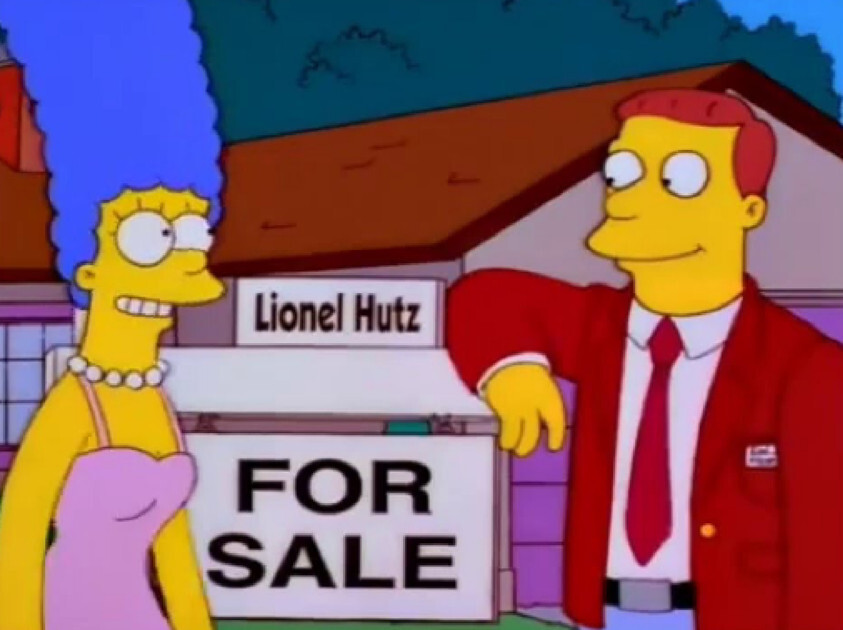
Buying your first home can be a soul-crushing experience – and that’s only if you’re lucky enough to scrape together a deposit in the first place. There’s nothing like picking out a place you love and showing up to the open home, only to find a crowd of boomers and property investors circling, ready to snap it up for higher than you can afford. It’s a common experience for young Aussies and makes getting a foot on the property ladder feel all-but impossible.
Right now, the Aussie property market is stacked against would-be first home buyers and in favour of property investors, but COVID-19 could change all that. We spoke to economist Saul Eslake, and discovered that there could possibly be a silver lining in all of this for young Aussies who’ve been shut out of the market until now.
Why is it so hard to buy a home right now?
Australians are a nation of property investors. We act as if it’s our birthright to have a property portfolio, to the point where eight-year-old kids are out there buying blocks of units with their parents’ money. The system is unfair, but I never realised just how unfair until several years ago, when I bought my first home, and got a sense of how this all works.
Say you buy a property and spend a few years paying it off, and decide you want another, as an investment. You can use the money you’ve already put into that first property as a deposit against the loan. Then you can get a tenant in there to help you pay off your mortgage, and you can take advantage of negative gearing to get yourself a nice little tax break.
When people play the property market in this way, we like to call them “mum and dad investors”, which is a soft and fluffy way of describing Australia’s landlord class, who like to hoard property for themselves and keep would-be homeowners out.
Then there’s also also the little fact that Australia’s national median house value has grown by 412% over 25 years, while wage growth has stagnated. It’s not just you: buying a property is much, much harder now than it was for our parents.
Things are pretty bad, and there’s not much chance the government will do anything about it
The overall home ownership rate in Australia right now is lower than it has been at any point since the 1950s, while the fastest growth in the property market has been among investors who own three or more houses. “Younger adults have been squeezed out of the market by property investors who enjoy generous treatment from negative gearing and capital gains tax discounts and that sort of thing,” Eslake explained.
“If you have a significant increase in money flowing into the property market from one source such as investors, it’s inevitable both that prices go up, and that people who don’t have the same access to finance are going to get shut out.”
The prospect of major reform in that area was dealt a significant blow at the last federal election, when the Labor Party ran on a platform that included winding back negative gearing and tax breaks, and lost. “Since then, regrettably but understandably, the Labor Party has ditched those policies, and the coalition, who won, aren’t about to start introducing them,” Eslake said.
How could COVID-19 change this?
Due to COVID-19, many Aussies have lost their jobs or are staying afloat on programs like JobKeeper and JobSeeker. Many are struggling to pay rent, and in the case of young people, many have moved back in with their families. This, coupled with the complete downturn of new migrants, has led to reduced demand in the rental market. That in turn has made it harder for many of those mum and dad investors to pay their mortgages, as they now find themselves without rental income.

As protections like JobKeeper and JobSeeker are wound back in months to come, many of these investors may find themselves struggling to pay their mortgages, and forced to sell these investment properties off. Eslake told us that bank managers are already having these conversations with customers, and that we’re likely looking at a situation of lower demand in the rental market, and therefore lower rents.
That’s where first home buyers could benefit. “If investors feel nervous about the outlook of property prices and sell their properties, they might not be snapped up by other investors,” Eslake said. “Investors buy property is to make money, whereas home-buyers buy properties in part because they want to live in them.”
“In that sense, if you if you find the house that you really want to live in for the next 10-15 years, it doesn’t matter as much if it drops in price in the first five years. If you’re not planning to sell it, what does it matter? You may want to sell in fifteen years time, and at that point, you’ll be hoping that the home hasn’t lost value, but if it loses value in the first few years, what does it matter?”
What does this all mean?
Long story short, the next few months could see rental prices falling in Australia. If this happens, and investors are forced to begin selling their properties because they can no longer pay the mortgage, there could be an opportunity for those who want to buy those homes and actually live in them. Of course, we don’t know how the bloody hell the Australian economy will look once we’re out the other side of all this – and many of us don’t even know if we’ll still have our jobs in a few months’ time – but this could be one glimmer of hope for those finally looking to get a foot in the door of their first home.



